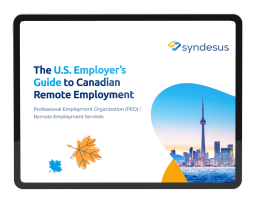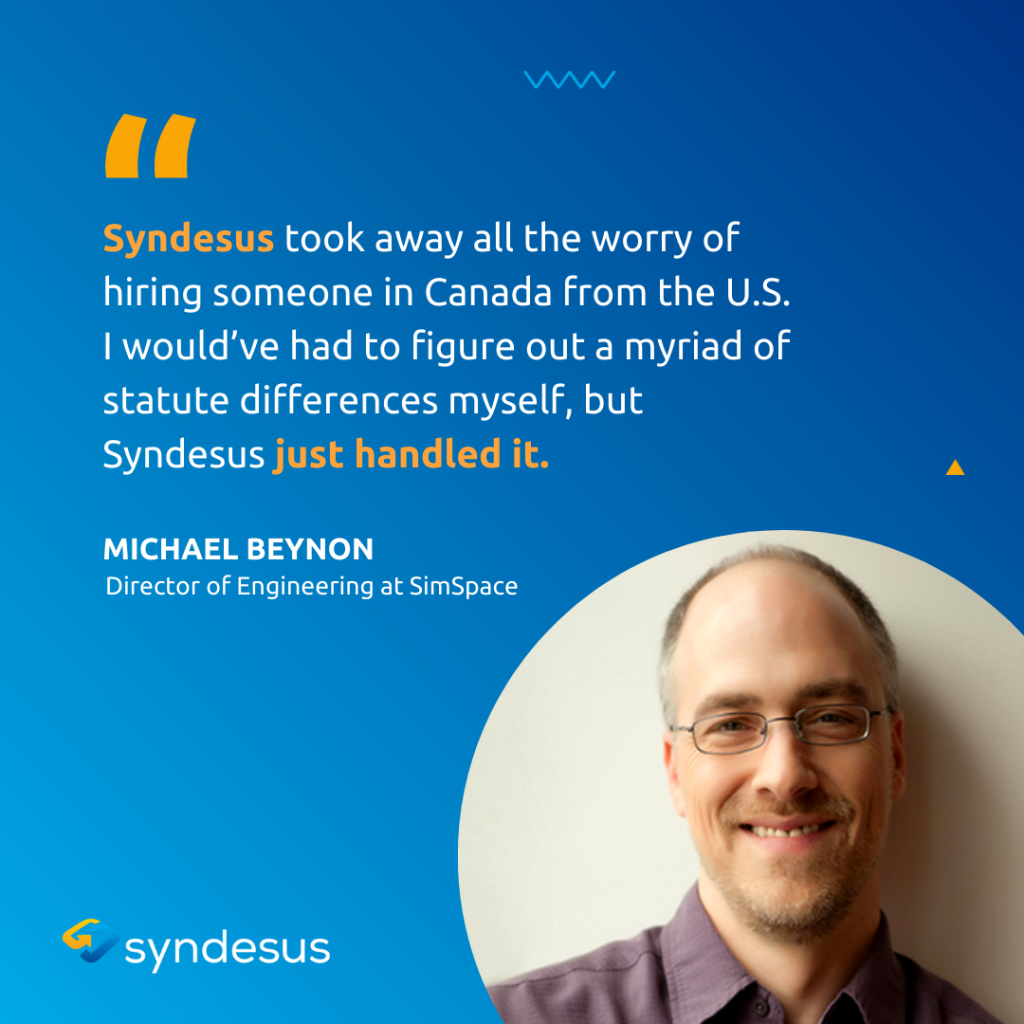The Problem
SimSpace is a leading cyber security company based in Boston, MA. The company started six years ago when several senior tech workers, with experience in National Defense, came together with one common vision: ‘quantify cyber risk by considering people, process and technology.’
Recognizing a need to assess and measure cyber risk posture for everyday businesses, SimSpace has refined its advanced simulation skills to create a visionary platform that measures specific security-related responses in a safe and controlled environment.
The company chose to focus on functional programming languages, like Haskell, for developing its cyber range platform. With big plans on the horizon, the company grew quickly and struggled to find employees that were a good fit.
“It’s particularly challenging finding enough engineers in the Boston area with experience using Haskell to create enterprise-level software,” SimSpace’s Director of Engineering Michael Beynon explained.
The company is now at 170 people and counting, and the company is constantly navigating ways to attract top-tier talent.
The Impact
Michael says that when hiring, he’s experienced having to force people to move to be eligible for the job – and it can be a gamble if it will work well. SimSpace wanted the flexibility to allow their employees to choose where to live, but to also ensure their staff was set up for success in a remote working environment with things like mentorship, teamwork, and reliable leadership.
“We understood pretty early on that in order to grow our team, we needed to hire Haskell developers where they were living,” said Michael.
In early 2017 SimSpace looked north to Canada and hired Samuel Gélineau, a Montreal-based software engineer, as their lead backend architect. The McGill-educated computer scientist wasn’t interested in leaving his hometown or moving to the US. He definitely wanted the job but life was in Montreal and he wanted to stay there, so the SimSpace team needed to find a solution.
The Solution
Both Samuel and Michael searched for answers and eventually discovered the Professional Employer Organization (PEO) model. A PEO, or employer of record, takes care of taxes, employment law, healthcare, and makes it easy to hire employees in Canada while they work remotely for their companies in the US.
“You get the best of both worlds: live where you want to and get together quarterly for in-person work and team building.”
After shopping around and having worked with other PEOs in the past, Michael and his team formed a relationship with Syndesus. Michael says it was the small team, quality knowledge, and hands-on experience that attracted SimSpace.
“We just had a really good feeling about Marc and Syndesus when we talked to him – it felt like a good fit that would serve us well,” explains Michael.
Fortunately now, geography isn’t a barrier for SimSpace. The company functions synchronously in many different places at once, with staff across the US, in Canada, and even in Germany.
Before the pandemic, the SimSpace team would meet once a quarter in person to solidify the team bond. Michael says these offsite meetings are essential for morale and camaraderie. And Michael doesn’t call it ‘remote working,’ he prefers the term ‘distributed working.’
“You get the best of both worlds: live where you want to and get together quarterly for in-person work and team building.”
The Results
“We weren’t specifically trying to grow the Montreal team, but once we hired one person there, word gets around through local meetups and chat boards. We had a lot of interest from other software engineers out of Montreal and other places because of Samuel.”
Though culturally similar, there are several differences between the US and Canada, such as taxes, holidays, vacation accrual, etc. Michael says working with Syndesus was simple. It allowed SimSpace to focus on the cyber problems they were trying to solve, while Marc and the team at Syndesus took care of all the details to get Samuel legally set up in Canada.
“Syndesus took away all the worry of hiring someone in Canada from the US I would’ve had to figure out a myriad of statute differences myself, but Syndesus just handled it.”
From there, Michael says Montreal became an attractive place to hire more members of the team. Today, Samuel and the rest of the Canadian SimSpace team (called Sigma internally) have grown to five members in Montreal, and all of them are managed through Syndesus. Michael says Team Sigma is one of the company’s higher-performing teams.
“We weren’t specifically trying to grow the Montreal team, but once we hired one person there, word gets around through local meetups and chat boards. We had a lot of interest from other software engineers out of Montreal and other places because of Samuel.”
The teams are tight-knit. Michael says their team in Montreal allows them the flexibility to hire more junior developers as the company grows. Rather than hiring a junior developer who may be isolated or may have never worked in a distributed environment, now Michael can hire junior developers in the same geographical area as a more senior person, so they can support each other when needed. This helps develop a team spirit of mentorship and leadership.
“From our experience, Canada has a great technical workforce. Working with a PEO is an effective way to get access to a workforce that’s hungry for working on challenging problems and Sydnesus allows us to engage those people.”
Future Plans
When asked if he had any advice for other tech companies looking to obtain Canadian talent, Michael recommends staying open to possibilities.
“From our experience, Canada has a great technical workforce. Working with a PEO is an effective way to get access to a workforce that’s hungry for working on challenging problems and Sydnesus allows us to engage those people.”
SimSpace has proven its resiliency throughout the last year using its distributed work model. They have remained business as usual in the face of unprecedented events, and the use of their services has increased.
“Going forward, we’ll continue to expand, hiring talented and motivated people as appropriate to achieve our vision of quantifying cyber risk for our customers.”






